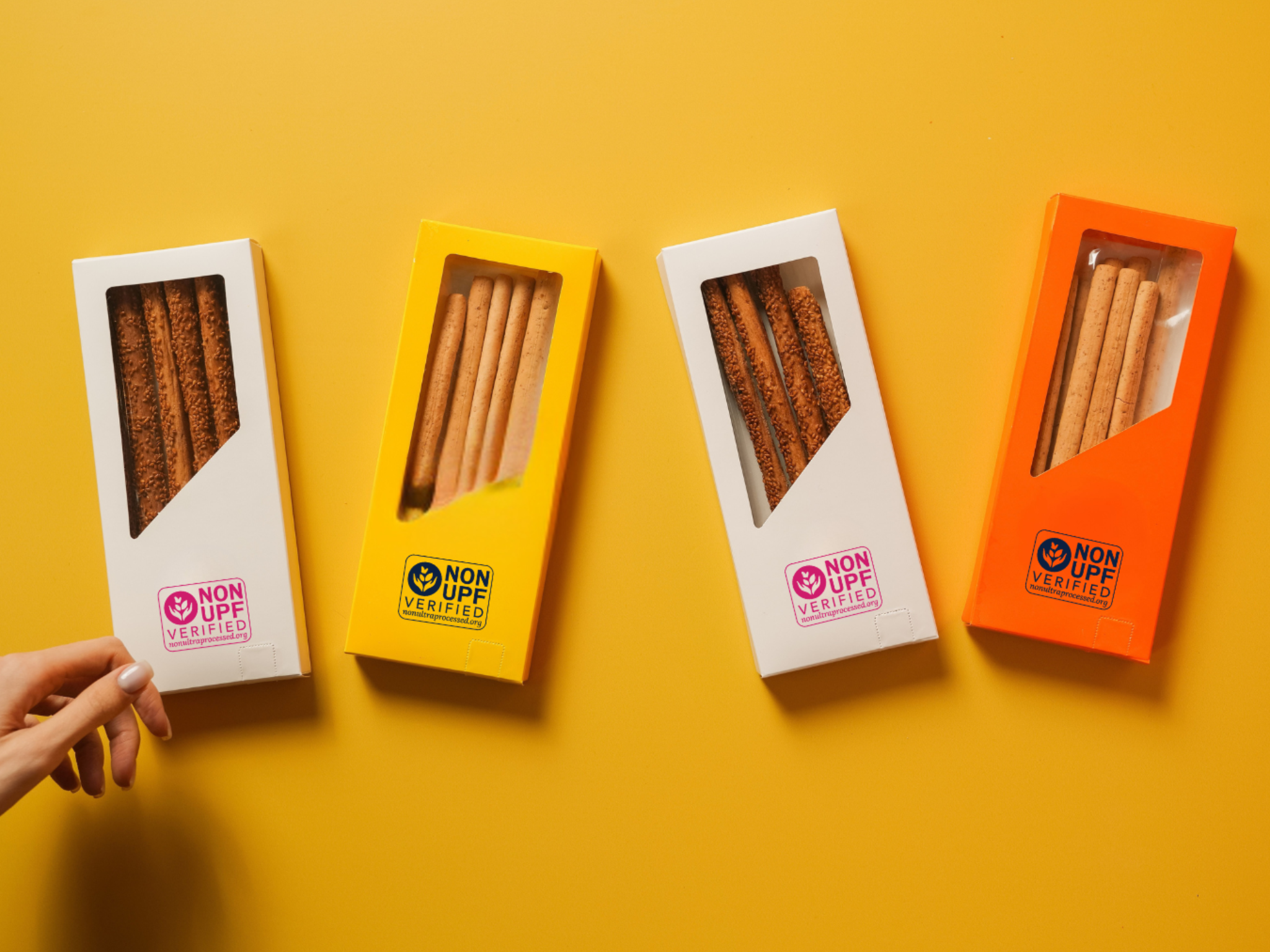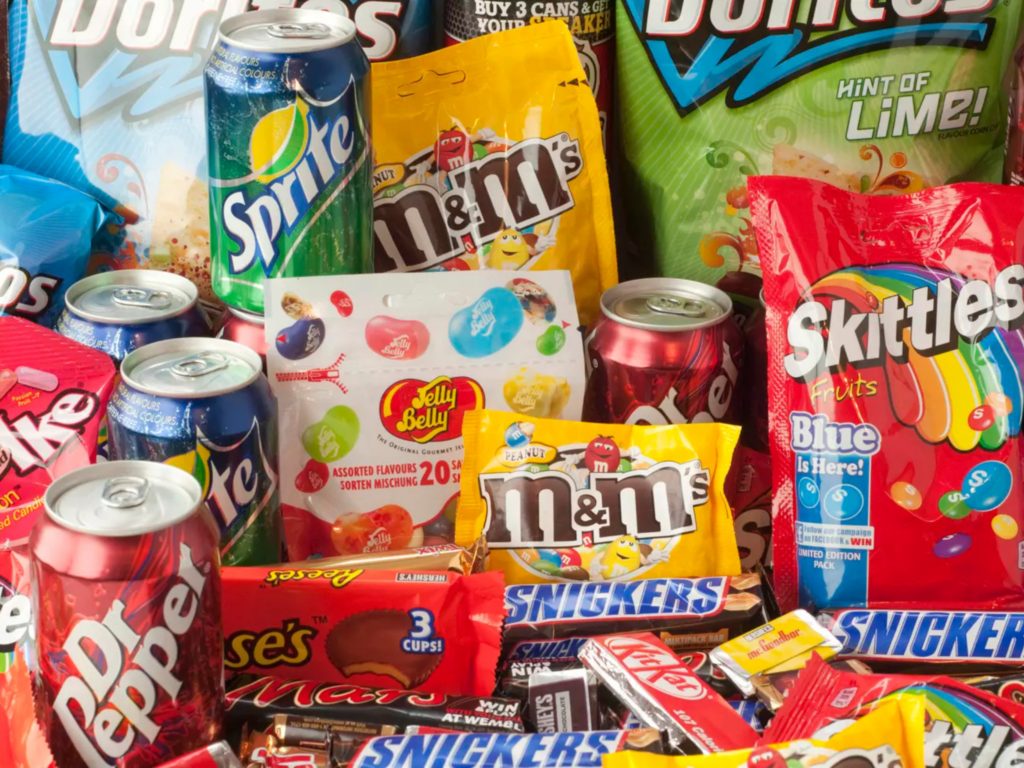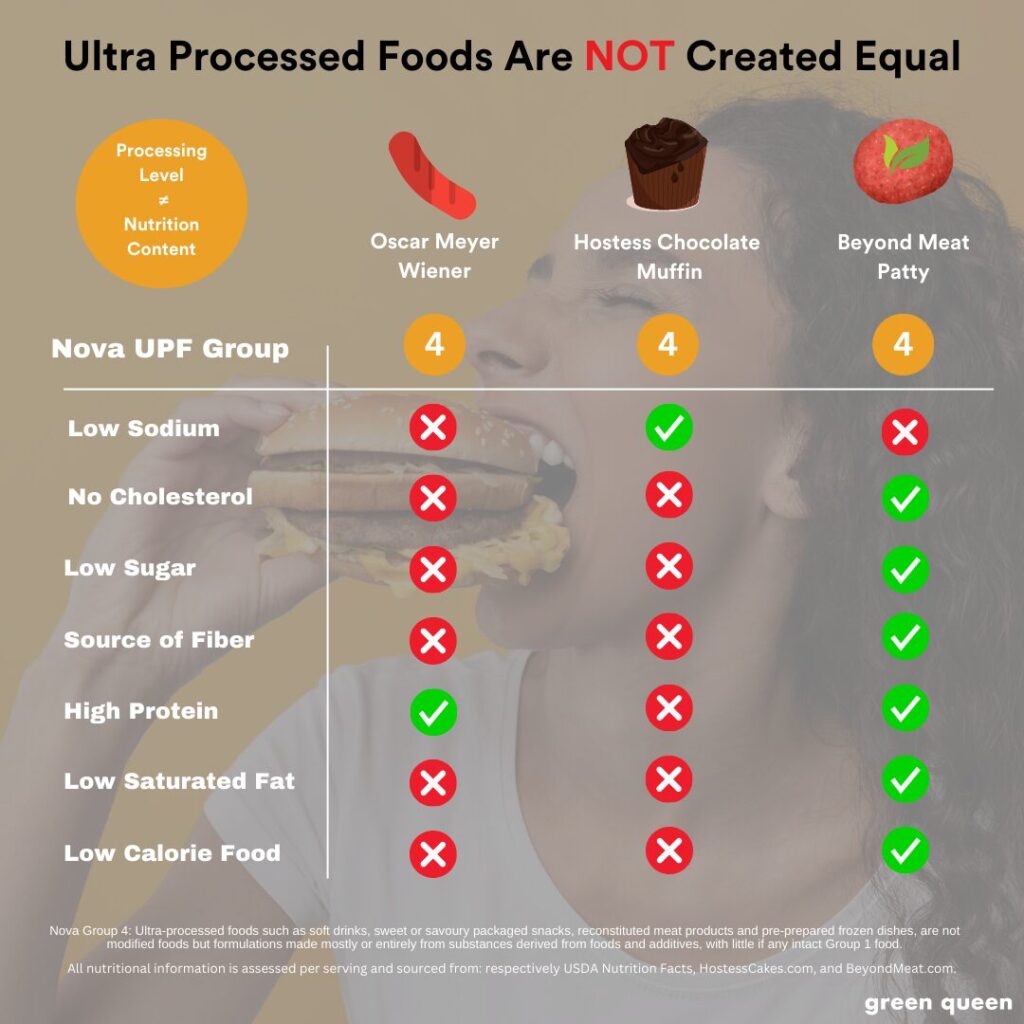
The Non-GMO Project, one of the most well-known verification bodies in the US, is rolling out a new label to help consumers identify ultra-processed foods.
The war against ultra-processed food (UPF) rages on, with a new verification label claiming to make it easier for consumers to make more informed choices about their food.
The Non-GMO Project, creator of the Non-GMO label, has announced that it will launch a Non-UPF Verified label to “address the pervasive dominance of ultra-processed food”. The badge will be launched under the newly established Food Integrity Collective, which brings together stakeholders from the natural products sector to “create systemic change in our food system”.
In the US, 73% of the food supply is made up of UPFs, contributing to 60% of the country’s calorie consumption. “Even the most informed consumers struggle to identify ultra-processed foods consistently,” said Megan Westgate, founder and CEO of the Non-GMO Project.
“When we began addressing GMOs in 2007, we recognised that genetic engineering was just one way industrial food production was distancing us from natural ingredients,” she added.
Do we need a Non-UPF verification label?

The advent of the Non-UPF Verified label stemmed from a survey conducted by the organisation last year, in which 85% of respondents said they wanted to avoid UPFs, but felt overwhelmed or unsupported in their desire to do so.
Westgate called the Standard American Diet one of the leading risk factors for death worldwide, but noted that navigating the food system today can feel like an impossible task.
“This isn’t by accident,” she said. “When tobacco companies acquired major food manufacturers in the 1980s, they deliberately applied their expertise in addiction science to food engineering. The result was a new generation of ultra-processed foods designed with the same precision as cigarettes to trigger cravings and override our body’s natural satiety signals.”
This is the same argument central to a recent lawsuit against food giants like Nestlé, Coca-Cola and Kraft Heinz in Pennsylvania, which argues that Big Food used the tobacco playbook to engineer UPFs to be as addictive as cigarettes. It accuses these companies of “aggressively marketing” them to children and contributing to the health crisis in America.
Critics like the Non-GMO Project cite studies that show UPFs to have a detrimental impact on human health, from depression and poor sleep to increased risk of chronic conditions like heart disease, obesity, type 2 diabetes, and cancer.
But a host of health experts have advocated for nuance when linking UPFs with nutrition, arguing that one has nothing to do with the other. The Nova classification – which originally defined UPFs – describes how much processing a food has gone through, not its health effects.
Consider this: while Coca-Cola, Oreos, Corn Flakes, Lay’s, and Haagen Dazs are all unsurprisingly considered UPFs (though not by every study), so are tofu and whole-grain bread.
Even the WHO found that not all UPFs are bad for you, suggesting that some foods – including plant-based meat products – are “not associated with risk of multimorbidity” (the medical term for having two concurrent life-threatening diseases), unlike other common UPFs.
Non-GMO takes a shot at plant-based meat, but not plants

Westgate argued that UPFs represent an even deeper departure from natural food than GMOs did, describing them as “taking familiar ingredients and transforming them so fundamentally that our bodies no longer recognise them as food”.
The website for Non-UPF Verified says “many products marketed as healthy are among the most highly processed foods” one can find. “Plant-based meat alternatives, protein bars, breakfast cereals, and ‘low-fat’ products often contain numerous industrial ingredients. Even products labeled ‘natural’ can be ultra-processed,” it reads. Marketing terms like ‘whole grain’, ‘all natural’ or ‘no artificial flavors’ don’t tell the whole story about how processed a food really is.”
Bundling plant-based meats with the rest is the same tactic used by detractors of alternative proteins, but it feels convenient that processed animal meat is excluded from its list of examples.
That said, the Non-GMO Project may not necessarily be against all plant-based food – to avoid UPFs, it suggests “focusing on whole, minimally processed foods like fruits, vegetables, whole grains (despite what it said above), and legumes when possible”.
The group has also been critical of precision fermentation, calling genetically modified alternative proteins “largely unregulated and unlabeled in the US and Canada”, despite animal-free dairy made using the tech already meeting the Food and Drug Adminstration’s safety standards.
Either way, as an organisation whose namesake label appears on 63,000 products that have an annual turnover of over $45B, it carries immense power and influence. And a non-UPF certification that attacks plant-based meat may not be a good sign for the vegan food industry.
And it comes at a time when UPFs face intense scrutiny in the US. California Governor Gavin Newsom has just signed an executive order asking state departments to suggest measures to limit purchases of UPFs, which could include similar warning labels on product packaging.
Plus, in a week’s time, Robert F Kennedy Jr will face Congress in hopes of being confirmed as President Donald Trump’s new health secretary. If he passes the test, there could be significant consequences for UPFs, which Kennedy has famously railed against.
The post In Latest Move Against Ultra-Processed Foods, Non-GMO Project to Launch Non-UPF Label appeared first on Green Queen.
This post was originally published on Green Queen.